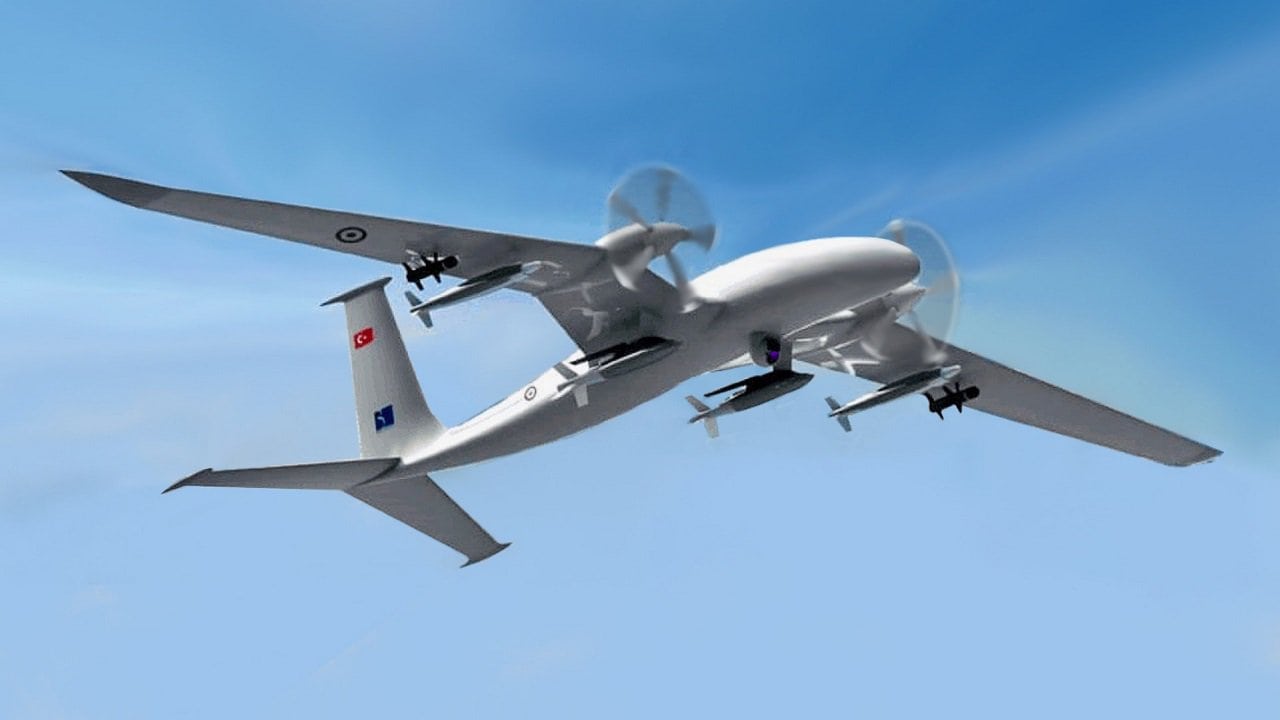The Bayraktar Akinci could be a real warrior in the sky: Two weeks ago, Turkey’s homegrown Baykar Makina “Akinci” unmanned combat aerial vehicle (UCAV) completed an unprecedented flight taking off from northwestern Turkey and landing in Azerbaijan. While Ankara’s aerospace industry has gained prominence in recent years for its roll-out of sophisticated and advanced drones, the debut of its Akinci UCAV in 2018 elevated the playing field. The Akinci’s capability to deliver precision munitions at altitude and range makes it a global champion in recon drone technology.
Akinci In Flight
The drone was first unveiled in 2019 at the TEKNOFEST Istanbul Aviation, Space and Technology Festival in Ankara. A month later, the Akinci completed its first engine test, followed by a series of technical tests that resulted in the drone’s incorporation into Turkey’s Airfield Command. By 2021, the Akinci successfully completed its first firing test, which used indigenously-produced munitions provided by the Turkish manufacturer Rokestan.
Recently, the UCAV served Turkey’s military in both air-to-ground and air-to-air attack missions. Six drones have entered the military’s inventory so far, completing their first mission in counterinsurgency operations against the Kurdish Workers’ Party (PKK) and People’s Protection Units (YPG) militants in northern Iraq and Syria.
Flying High, Akinci Can Reach High Altitudes
Akinci is a high-altitude, long-endurance UCAV that is capable of supporting fighter jets in missions. The drone is wider and longer than its Bayraktar TB2 predecessor, with a 20-meter long wingspan that hosts a twisted-wing structure. A single vertical tailfin is positioned at the rear of the aircraft and the frontal section of its fuselage features the optics and avionics fit. The UCAV is also equipped with a triple-redundant flight control system, and its dual artificial intelligence (AI)-powered avionics suite improves the drone’s situational awareness and signal processing. The drone is controlled by homegrown satellites that allow a pilot and command operator to control the aircraft.
Additionally, the drone is capable of carrying a maximum payload of 1,350 kilograms and can be fitted with various weapon payloads including “missiles, long-range stand-off weapons and laser-guided smart ammunitions.” The drone is able to launch the long-range air-to-surface cruise Stand-Off Missile (SOM) that was produced by Rokestan. In April, the UCAV completed its first firing test alongside its TB2 predecessor and was able to hit its target by dropping an MK-82 bomb from an altitude of 20,000 feet onto a floating target.
Akinci’s latest flight was deemed another first in Turkey’s aviation history. Covering a distance of approximately 2,000 kilometers, the drone’s flight from northwestern Turkey to Azerbaijan successfully completed its long-range high-endurance test. It took the Akinci five hours to complete its unprecedented trajectory, which was equally impressive.
The Akinci UCAV succeeds Turkey’s TB2 drone, which has proven to be an effective and lethal tool in combat zones from the Caucuses to North Africa. Recently, the TB2 has been used by Ukrainian forces to counter Russia’s offensive strategy in the country. The addition of the new Akinci combat UAV to Ukraine’s arsenal would further halt the speed of Russia’s advancement in Kyiv. While Turkey’s new combat drone has yet to be exported, the incorporation of its sophisticated capabilities into the arsenals of militaries will alter the trajectory of UAV warfare for years to come.
Maya Carlin is a Middle East Defense Editor with 19FortyFive. She is also an analyst with the Center for Security Policy and a former Anna Sobol Levy Fellow at IDC Herzliya in Israel. She has by-lines in many publications, including The National Interest, Jerusalem Post, and Times of Israel.

